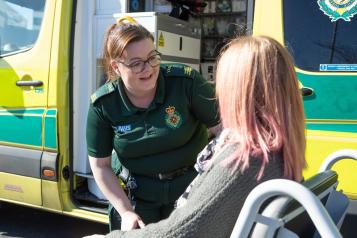Newham is ‘TB Capital’ of Western Europe
In 2012, there were 8751 new cases identified, with 39% of these in London. The city has the highest rate of TB in Western Europe, while Newham has the highest in the whole of the UK. In Newham, over 90% of patients were born abroad, with the majority in the Indian subcontinent. Early diagnosis and treatment is essential
Far-reaching action is needed to reduce these figures, and a national TB strategy is currently being developed. Early diagnosis and treatment of TB are essential for two reasons: they ensure patients are fully cured, and lessen the risk of them passing TB on to others.
People at risk of TB should be aware of the most common symptoms of TB and know that treatment is free for all patients, with no prescription charges. Plenty of information is available at www.thetruthabouttb.org, the website of TB Alert, the national TB charity.
It is also crucial that local health and social care services support the needs of people during the six-month course of treatment. If the full course of medicine is not taken, there is a risk of developing a strain of TB, which is resistant to antibiotics more difficult to treat.
Within some communities, there is a great deal of stigma and misinformation about TB, and local community organisations can do much to tackle this. The truth is that TB is just an unpleasant infection that anyone can catch, and that is nearly always curable if caught in time. TB symptoms include a cough for three weeks or longer, weight loss, fever, night sweats, tiredness, no appetite. Symptoms can appear slowly and people may not get all of them. Remember, TB is curable and treatment is free.

